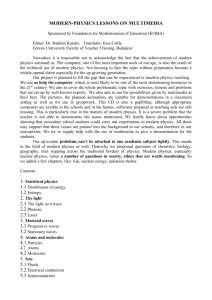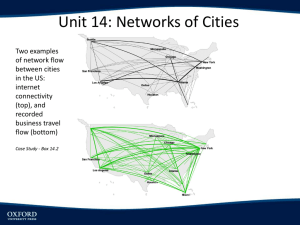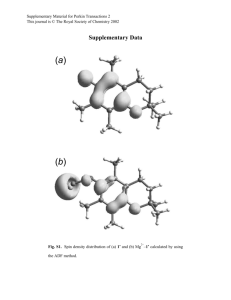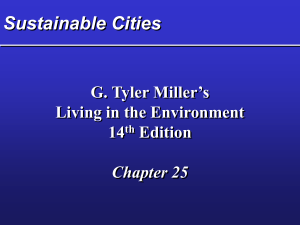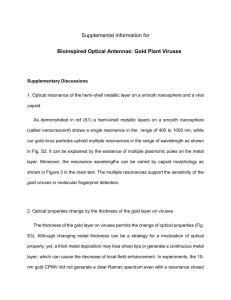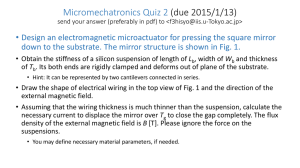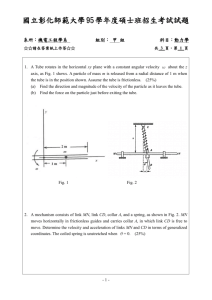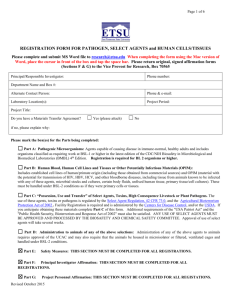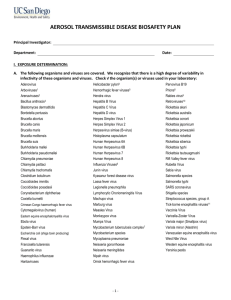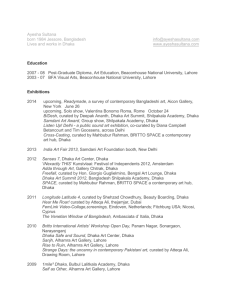Cell and Tissue Culture Laboratory was launched in Centre for
advertisement
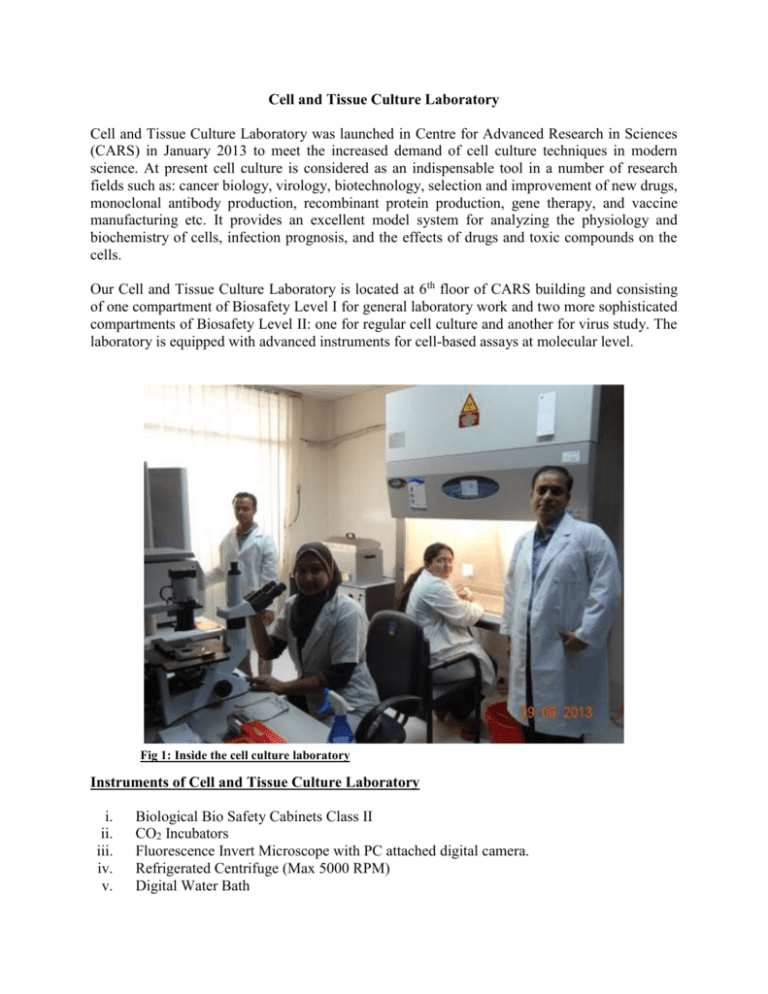
Cell and Tissue Culture Laboratory Cell and Tissue Culture Laboratory was launched in Centre for Advanced Research in Sciences (CARS) in January 2013 to meet the increased demand of cell culture techniques in modern science. At present cell culture is considered as an indispensable tool in a number of research fields such as: cancer biology, virology, biotechnology, selection and improvement of new drugs, monoclonal antibody production, recombinant protein production, gene therapy, and vaccine manufacturing etc. It provides an excellent model system for analyzing the physiology and biochemistry of cells, infection prognosis, and the effects of drugs and toxic compounds on the cells. Our Cell and Tissue Culture Laboratory is located at 6th floor of CARS building and consisting of one compartment of Biosafety Level I for general laboratory work and two more sophisticated compartments of Biosafety Level II: one for regular cell culture and another for virus study. The laboratory is equipped with advanced instruments for cell-based assays at molecular level. Fig 1: Inside the cell culture laboratory Instruments of Cell and Tissue Culture Laboratory i. ii. iii. iv. v. Biological Bio Safety Cabinets Class II CO2 Incubators Fluorescence Invert Microscope with PC attached digital camera. Refrigerated Centrifuge (Max 5000 RPM) Digital Water Bath vi. vii. viii. ix. x. xi. xii. xiii. xiv. xv. xvi. xvii. xviii. xix. xx. xxi. -86°C Ultralow Temp Freezer Refrigerator Freezer Liquid Nitrogen Chamber Vacusafe Pipet aid Nano Pure Water Purification System Autoclave Microplate Spectrophotometer Thermal Cycler Luminometer Heating/Cooling Dry Block High Speed Micro Centrifuge Speed Mini Vac Vortex Mixer Electrophoresis system (both horizontal and vertical) Micro Wave Oven Fig 2:Skilled handling of -86°C freezer Fig 3: Liquid nitrogen chamber Laboratory Activities Three types of activities: research services, education and training, and research and collaboration are conducted in this laboratory. 1. Research Services Our research services are provided to researchers, such as faculties, and students of Ph.D. and M.Sc. of not only Dhaka University but also other universities and institutes and also to external clients like NGOs and other research organizations. Our main services include examination of cytotoxicity and cytocompatibility evaluation of biomedical materials by both qualitative and quantitative means. These are mandatory preliminary test for screening potential toxicity of biomaterials and medical devices before entering into advance testing and development. We presently provide following services: 1) Qualitative assessment of cytotoxic effect of different chemicals or bioproducts: It is simple but convincing and widely used technique in which the cells with testing substrate are examined under a light microscope for general morphology, vacuolization, detachment and cell lysis in compare to control cells without the substrate as shown in the following figure. Fig 4: Qualitative assessment of cytotoxicity 2) Quantitative assessment of cytotoxic effect of different chemicals or bioproducts: In quantitative analysis, the half maximal inhibitory concentration (IC50) of a compound in inhibiting biological or biochemical function is determined through MTT assay, which is well established technique for cell viability examination. 3) Digital Microscopy including both light and fluorescence microscopy with inverted microscope for live observing and capturing images. 4) Speed Vac for vacuum concentration of DNA/RNA/phytochemical fractions in organic solution. 5) Absorbance reading at wide range of wavelengths (200 - 999 nm.) and micro plates (6- to 384- well plate). 6) Luminometer for measuring luminescent materials. 7) Dry heating/cooling (-10°C to 100°C) block suitable for 0.5 & 1.5 ml tubes. 8) Centrifugation: (a) Swing rotor (refrigerated; max. 50ml, 2000 rpm) (b) Fixed Rotor (max. 1.5 ml, 15000 rpm) 9) Thermal cycle (PCR) with UPS backup. 10) -80° C Ultralow Temperature Freezer with generator electricity backup to keep the freezing temperature always constant between -75°C and -80°C. 11) Supply of nanopure water (Specification: inorganics up to 18.2MΩ.cm, bacteria <1 cfu/ml, organics <5ppb, particles <0.2µm, endotoxin <0.001EU/ml, DNase <4pg/µl, RNase <0.01ng/ml) 12) Other cell culture based study: While we are committed to open our cell culture facilities for all types of cell based studies, we are very much conscious about biosafety as well as lab security. A study can be performed only after consultation with our experts and under supervision of the authority. 13) Virus study: We have separate compartment of biosafety level II in our laboratory for virus study: virus isolation, propagation and molecular characterization. Viruses that are suitable within Biosafety level II are recommended only for study. Fig 5: Prof. AAMS Arefin Siddique, Vice Chancellor of Dhaka university, visited Cell and Tissue Culture Laboratory. Fig 6: Prof. AAMS Arefin Siddique, Vice Chancellor of Dhaka university, was observing cell line under inverted microscope. 2. Education and Training Considering the importance of cell culture in higher studies as well as in biotechnology, we launched a training program entitled by “Cell Culture for Advanced Research” to introduce the art and science of cell culture and tissue engineering to our researchers/students. The program includes 5 days lecture as well as hands on training on cell passage, counting, seeding, inoculation, cytotoxicity examination, cell preservation, staining, genetic engineering, viral infection. After completion of the training program CARS provides a certificate. Already we have conducted training program of several batches. Teachers, students and scientists from inside and outside of Dhaka University are participating in this training program. Recently, we conducted a three-day training workshop on Cell Culture Techniques under the Higher Education Quality Enhancement Project (HEQEP) where a total of 11 teachers from different public universities including the Dhaka University were participated. Fig 7: The certificate awarding ceremony of a three-day training workshop on cell culture techniques sponsored by HEQEP. 3. Research and Collaboration Mainly cell based researches, particularly research on infectious diseases by viruses, such as rota virus, influenza virus, HIV, HBV, FMDV etc. are performed in Cell and Tissue Culture Laboratory. However, we can conduct any kind of basic or epidemiological studies in collaboration with local and international partners that are important in the context of Bangladesh. Fig 8: Dr. Sayaka Takanashi, Asst. Prof. of University of Tokyo, (right) visited our lab. She provided several Ourlines major publications include cell to our lab. Our major publications are Hoque SA, Hoshino H, Anwar KS, Rahman SR, Tanaka A, Shinagawa M, Hayakawa Y, Okitsu S, Wada Y and Ushijima H. Transient heating of expressed breast milk up to 65°C inactivates HIV-1 in milk: a simple, rapid and cost-effective method to prevent postnatal transmission. J Med Virol. 2013 Feb;85(2):187-93. Islam S, Hoque SA, Jinno-oue A, Tanaka A, Hoshino H, X4-tropic Human Immunodeficiency virus (HIV), IIIB, utilizes CXCR4 as coreceptor distinctly from R5X4-tropic viruses. Microbiol Immunol. 2013 Jun;57(6):437-44. Islam S, Shimizu N, Hoque SA, Jinno-oue A, Tanaka A, Hoshino H, CCR6 functions as a new coreceptor for limited primary human and simian immunodeficiency viruses. PLoS One. 2013 Aug 29;8(8):e73116
